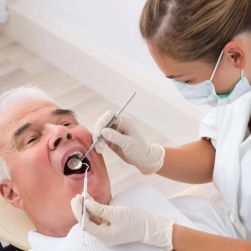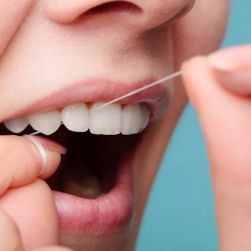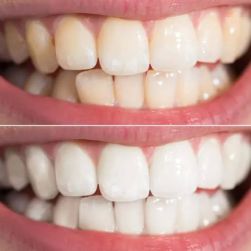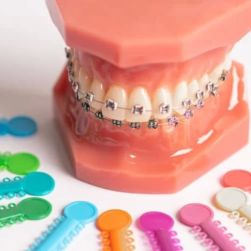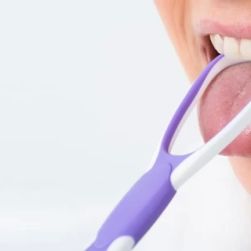Maintaining a healthy, hydrated mouth is something that many people overlook. Yet, proper hydration plays a crucial role in your overall oral health. Over the years, I’ve realized that a dry mouth, or xerostomia, can be a real issue that affects your comfort, breath, and even your teeth. I’ve encountered it myself on numerous occasions, and it’s often a sign that your body isn’t producing enough saliva. So, I’ve spent some time exploring the best ways to keep your mouth hydrated and healthy, and I’d like to share these valuable tips with you!
Why Is Keeping Your Mouth Hydrated Important?
When I first experienced dry mouth, I didn’t fully understand the importance of hydration. I figured it was just a minor inconvenience, but it turns out that it can have long-term consequences on oral health. Saliva is a natural defense against plaque, bacteria, and even the acids produced by food. Without enough saliva, you are at a higher risk of developing cavities, gum disease, and even bad breath. This is why maintaining good hydration is essential not just for comfort but also for the health of your teeth and gums.
Here are a few reasons why saliva is so important:
- Helps neutralize acids produced by bacteria in your mouth, protecting your enamel.
- Facilitates digestion by breaking down food particles and aiding in swallowing.
- Washes away food particles and reduces the buildup of plaque, which can lead to tooth decay and gum disease.
- Keeps your mouth fresh by reducing bad breath (halitosis) that often results from a dry mouth.
What Are the Best Ways to Keep Your Mouth Hydrated?
It’s not just about drinking water—although that’s certainly part of the equation! Over the years, I’ve discovered a variety of methods that truly help keep the mouth hydrated, fresh, and healthy. Here are the top strategies that I have found to be the most effective:
1. Drink Plenty of Water Throughout the Day
The most straightforward and perhaps the most important advice I can give is to drink plenty of water. Hydration starts from within, and your mouth is no exception. I make it a point to carry a water bottle around and take sips throughout the day. Not only does this keep me hydrated, but it also helps wash away food particles and bacteria in my mouth. This is essential for maintaining a healthy oral environment.
Remember, aim to drink at least eight 8-ounce glasses of water each day. If you're physically active or in hot weather, you might need even more. This simple step is the foundation of good oral health.
2. Use Sugar-Free Gum or Lozenges
When I’m feeling particularly dry-mouthed or after a meal, I often chew on sugar-free gum or pop a sugar-free lozenge. This helps stimulate the production of saliva, which is essential for keeping the mouth moist. I also find it refreshing and it keeps my breath feeling fresh throughout the day.
Make sure to choose gum or lozenges that are free from sugar, as sugar can contribute to the growth of bacteria and plaque. Look for xylitol-based products, as xylitol is known to promote saliva flow and help fight cavities.
3. Use a Humidifier at Night
If you live in a dry climate or tend to sleep with the air conditioning running, I’ve found that using a humidifier at night can be a game-changer. Dry air, especially in colder months, can exacerbate dry mouth symptoms. A humidifier adds moisture to the air, preventing your mouth from drying out while you sleep. This has really helped me stay comfortable throughout the night, and I wake up feeling refreshed with no parched feeling in my mouth.
4. Avoid Dehydrating Beverages
It’s easy to reach for sugary sodas or a cup of coffee when you need a pick-me-up, but over time, these drinks can contribute to dehydration. I’ve learned to moderate my intake of caffeine and alcohol, as both are known to reduce saliva production. Instead, I opt for water, herbal teas, or coconut water, which hydrate without causing dryness in the mouth.
5. Maintain Good Oral Hygiene
Keeping your mouth clean is not just about preventing plaque buildup but also about promoting healthy saliva flow. Brushing my teeth twice a day with fluoride toothpaste, flossing regularly, and using mouthwash help remove food particles and bacteria, which in turn encourages natural saliva production. I also make sure to clean my tongue, as bacteria can easily accumulate there and cause dry mouth symptoms.
Be cautious when using mouthwashes that contain alcohol, though. While they may kill bacteria, they can also leave your mouth feeling even drier. Instead, choose alcohol-free mouthwashes that are designed for sensitive mouths or that help promote moisture.
6. Eat Hydrating Foods
Another tip I’ve incorporated into my routine is eating foods that help keep my mouth hydrated. Fruits and vegetables with high water content, such as cucumbers, celery, apples, and watermelon, are not only healthy but also help stimulate saliva production. I enjoy snacking on these throughout the day, and they help maintain a fresh feeling in my mouth.
7. Avoid Smoking
Smoking is one of the biggest culprits when it comes to causing dry mouth. When I quit smoking, I noticed a huge improvement in my mouth’s moisture levels. Smoking restricts saliva flow, which can worsen dry mouth and increase your risk of cavities and gum disease. If you’re a smoker, I highly recommend speaking to a healthcare professional about strategies to quit, for the sake of both your overall health and oral hygiene.
My Personal Journey: Overcoming Dry Mouth
Let me share a bit about my own experience with dry mouth. It wasn’t until I started to feel the discomfort regularly that I realized how much it was affecting my daily life. My teeth began to feel sensitive, and I noticed an increase in bad breath. That’s when I decided to take action, and by implementing many of the tips I’ve mentioned here, I’ve seen a dramatic improvement.
Staying hydrated, using a humidifier at night, and practicing good oral hygiene have all contributed to my mouth feeling healthier. My breath is fresher, my teeth feel better, and I’m no longer struggling with that uncomfortable dry mouth sensation. The positive changes have motivated me to stick with these habits, and I now recommend them to everyone I know.
How Can You Keep Your Mouth Healthy Long-Term?
Keeping your mouth hydrated is just one piece of the puzzle when it comes to oral health. Regular dental checkups, proper brushing, and a healthy diet are all essential components of maintaining a healthy mouth long-term. It's crucial to stay consistent with these habits, as they not only help keep your mouth hydrated but also prevent the onset of oral diseases like gum disease and tooth decay.
For anyone struggling with dry mouth or simply looking to improve their oral health, I recommend reaching out to a dentist or dental professional. They can help provide personalized advice based on your specific needs and help you find the best solutions for maintaining a hydrated, healthy mouth.
If you’re looking for the most suitable dental care and expert recommendations, don’t hesitate to visit Dentistry Toothtruth, where you can find the best services tailored to your oral health needs.

